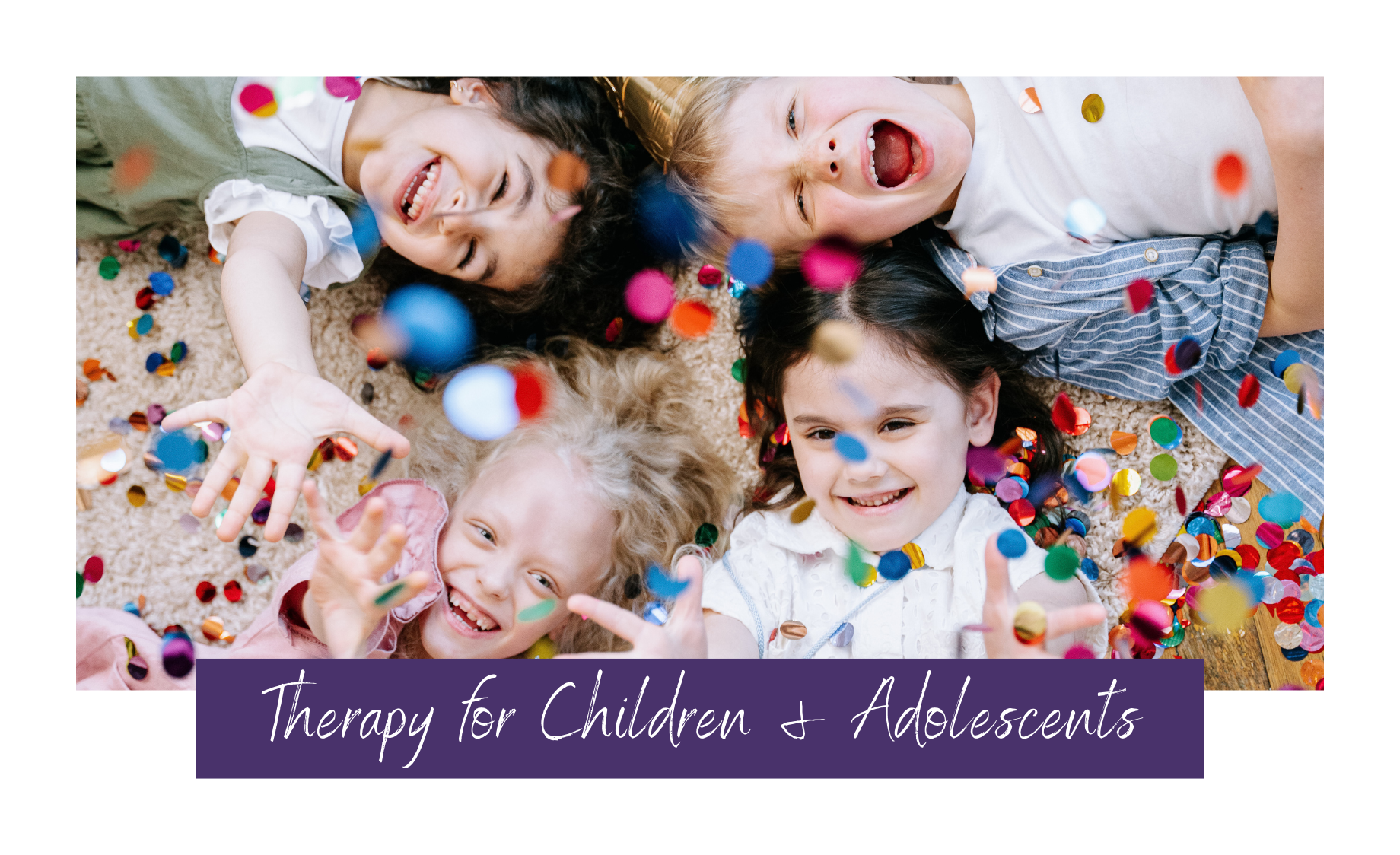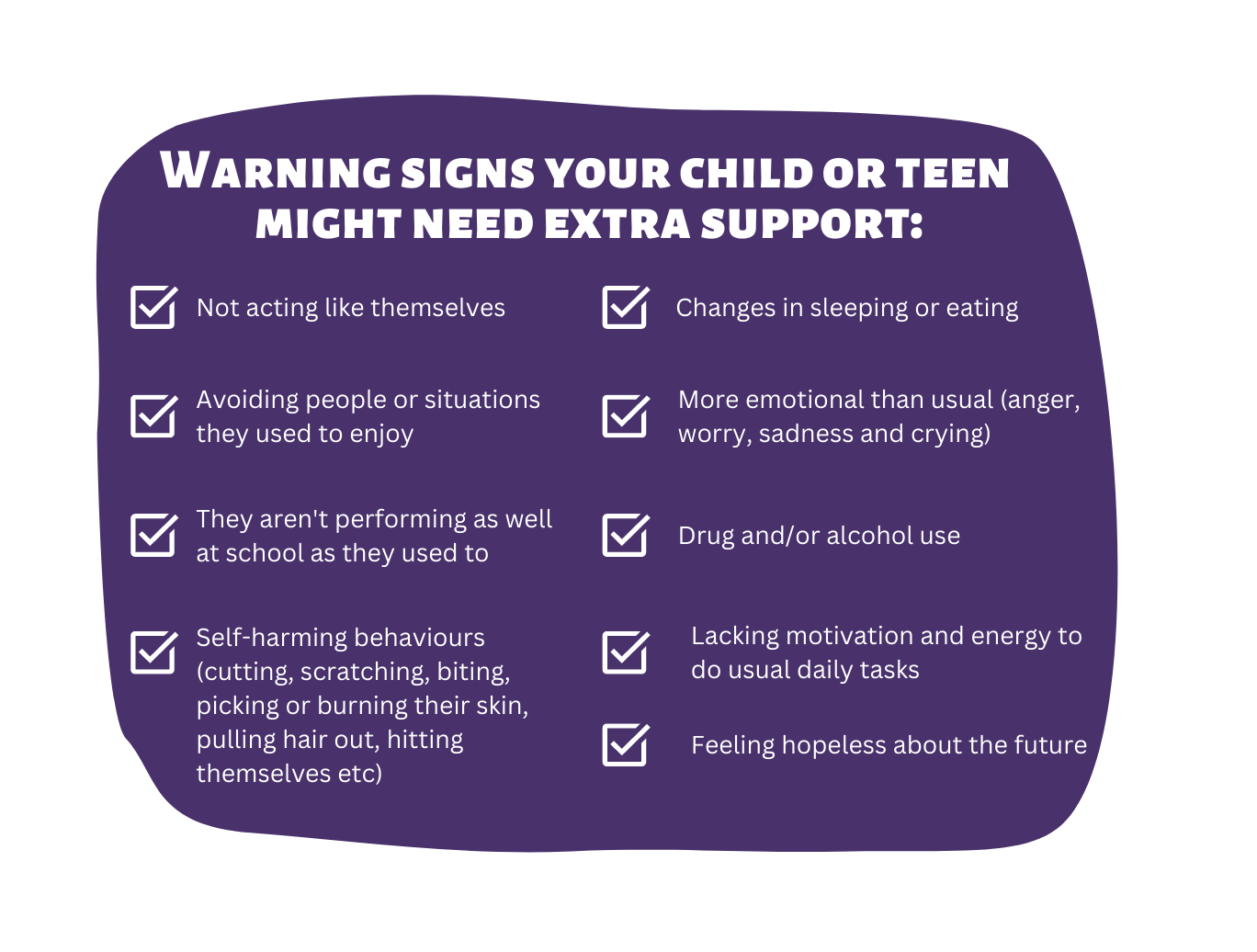Space

We work with children and adolescents to support a range of concerns including:
- Challenging behaviours such as anger, aggression, defiance, school refusal, non-cooperativeness.
- Low mood or depression
- Stress or anxiety
- Conflict with family, friends or at work
- Traumatic experiences including assault, accidents, natural disasters or other stressful events
- Grief or bereavement
- Alcohol, tobacco or other drug use
- Suicidal thoughts and / or self-harming behaviour
- Gender and/or sexuality concerns
- Bullying
- Relationship problems
- Anger
Working with children and teens requires a specialist skill set including an understanding of their developmental stage and family systems. Children and teens generally live and function within a family unit and therefore involvement of family is at the centre of our approach. However, there are some important factors we need to consider in working with children and teens.
Working with Children (ages 1 - 11):
Children's brain's are far less developed compared to the adult brain. The areas responsible for emotion regulation, impulse control, insight, planning, behaviour regulation, hindsight, foresight, consequential thinking, morality and complex problem solving are among the last to develop - these are referred to as "executive functions". This development finalises at approximately age 25 in girls, and close to 30 in boys!
Therapy is a complex process which requires the participant to possess a reasonable (and ideally high) degree of of executive functioning skills. What we ask adults and children to do in therapy is consider their thoughts, feelings and behaviours (this requires insight); to consider how their thoughts, feelings and behaviours are impacting their lives and the lives of others around them (this requires consequential thinking, foresight, hindsight and possibly some sense of morality); and to consider how (and why) they might change those thoughts feelings and behaviours, enact a plan and carry out that plan (this requires emotion regulation, impulse control, planning and complex problem solving). Many of these required skills are grossly under developed and while we can teach these skills, we cannot speed up brain development and we cannot expect consistency of behaviour in an under developed brain.
It is for this reason we believe therapy is rarely beneficial for children, with the exception of a few specific circumstances (usually related to trauma). Rather, we believe a collaborative process between parent, child and therapist achieves far more beneficial outcomes. As a parent, you have a close bond with your child that we as the therapist will never come close to matching. This supportive, trusting bond serves as the basis for our interventions - we teach you skills and you teach your child skills that you will continue to reinforce and work on long after you finish working with us!
Working with Adolescents (ages 12 - 17):
Adolescent's brains are a little more developed than a child's, but still not as developed as an adults. Many of the executive functions listed in the previous section are considered "under construction" in adolescents; this means we can expect to see more demonstration of executive functioning skills, but still not consistency of behaviour. Because many of these executive functions are coming "online" in the adolescent brain, we can often undertake meaningful therapy. However, not every young person develops at the same rate, and not every adolescent will be able to engage meaningfully and independently in therapy.
In an ideal world, we recommend younger adolescents (under age 14) engage in a semi-collaborative therapy process. This means, we typically see the young person on their own for their therapy session, and provide you (the parent/caregiver) feedback about what we're working on after the session, along with suggestions of how to support your young person and any "homework" we might have allocated for completion between sessions. This also allows you the opportunity to provide us with vital information about how things have been going between sessions and any concerns you have. Of course, your young person may wish to engage in therapy without you being part of the process - this becomes a careful balance between our legal obligations, our duty of care and what we know is best practice when working with young people. In this circumstance we will speak with you and your young person about how to move forward in the safest, most meaningful way possible.
In older adolescents (aged 14+) we still recommend a semi-collaborative therapy process, particularly where teens are still living within the family unit. However, young people over age 14 are usually given the legal right to access medical services (including therapy) without parental consent. Again, we carefully balance our legal obligations, our duty of care and best practice to try and navigate this in the best interests of all parties.
If you have questions or concerns related to how we might engage your young person, what level of involvement you as a parent/caregiver might have, and our legal obligations/duty of care, please don't hesitate to contact us.

What Can You Do?
It's normal to feel confused, frightened or alone when trying to support your child who doesn't appear to be doing well. There are things you can do to support them:
- Learn more - research online, talk to people you know, seek out experts who can guide you in the right direction.
- Don't be afraid to have conversations with your child. Find a quiet time when your child is calm and ask them "I noticed [insert concerning behaviours you've observed], what's up?" This is a non-confrontational invitation for them to speak. For example, "I noticed you've looked more worried than usual and don't seem to be enjoying school. What's up?" Listen with genuine curiosity and don't interrupt, dispute, argue or dismiss their concerns. No matter how trivial, insignificant or ridiculous the problem might seem, it IS a problem to your young person, and that makes it important!
- Remember that it's common for children and adolescents to worry about being judged, and that might make it hard for them to open up.
- Children and adolescents frequently struggle to find the words to express themselves. When they say "I don't know," there's a good chance they either don't know or can't find the right words to express themselves. Be patient, encouraging and gentle.
- If they don't want to talk, don't push. Offer support outside the family to ensure they have someone to talk to. This could be a mental health professional (including face-to-face, over the phone or online), GP or school counsellor.
- Take their feelings seriously. Seek professional help if they aren't ok - especially if they talk about hopelessness, suicide or self-harming behaviours.
- You're not expected to be you're child or adolescent's counsellor or to know exactly what to do. Reach out for support if you're unsure!
- Make an appointment with your GP to discuss whether a Mental Health Care Plan is appropriate. This provides access to a number of degree qualified, Medicare registered mental health professionals including Accredited Mental Health Social Workers, Mental Health Occupational Therapists and Psychologists. This is the primary way most people access the services at Flourish Therapy & Consulting.
- Call Kids Help Line on 1800 55 1800 (for people up to age 25)
- Call the Suicide Call Back Service on 1300 659 467 (for people up to age 15)
- Call Lifeline on 13 11 14 (all ages)
- Visit our resources page for weblinks, resources, articles and books that may be helpful
Kessler, R. C., Berglund, P., Delmer, O., Jin, R., Merikangas, K. R., & Walters, E. E. (2005). Lifetime prevalence and age-of-onset distributions of DSM-IV disorders in the National Comorbidity Survey Replication. Archives of General Psychiatry, 62(6), 593-602. DOI: 10.1001/archpsyc.62.6.593
Lawrence D, Johnson S, Hafekost J, Boterhoven De Haan K, Sawyer M, Ainley J, Zubrick SR. (2015). The Mental Health of Children and Adolescents. Report on the second Australian Child and Adolescent Survey of Mental Health and Wellbeing. Department of Health. Retrieved https://www.health.gov.au/sites/default/files/documents/2020/11/the-mental-health-of-children-and-adolescents_0.pdf